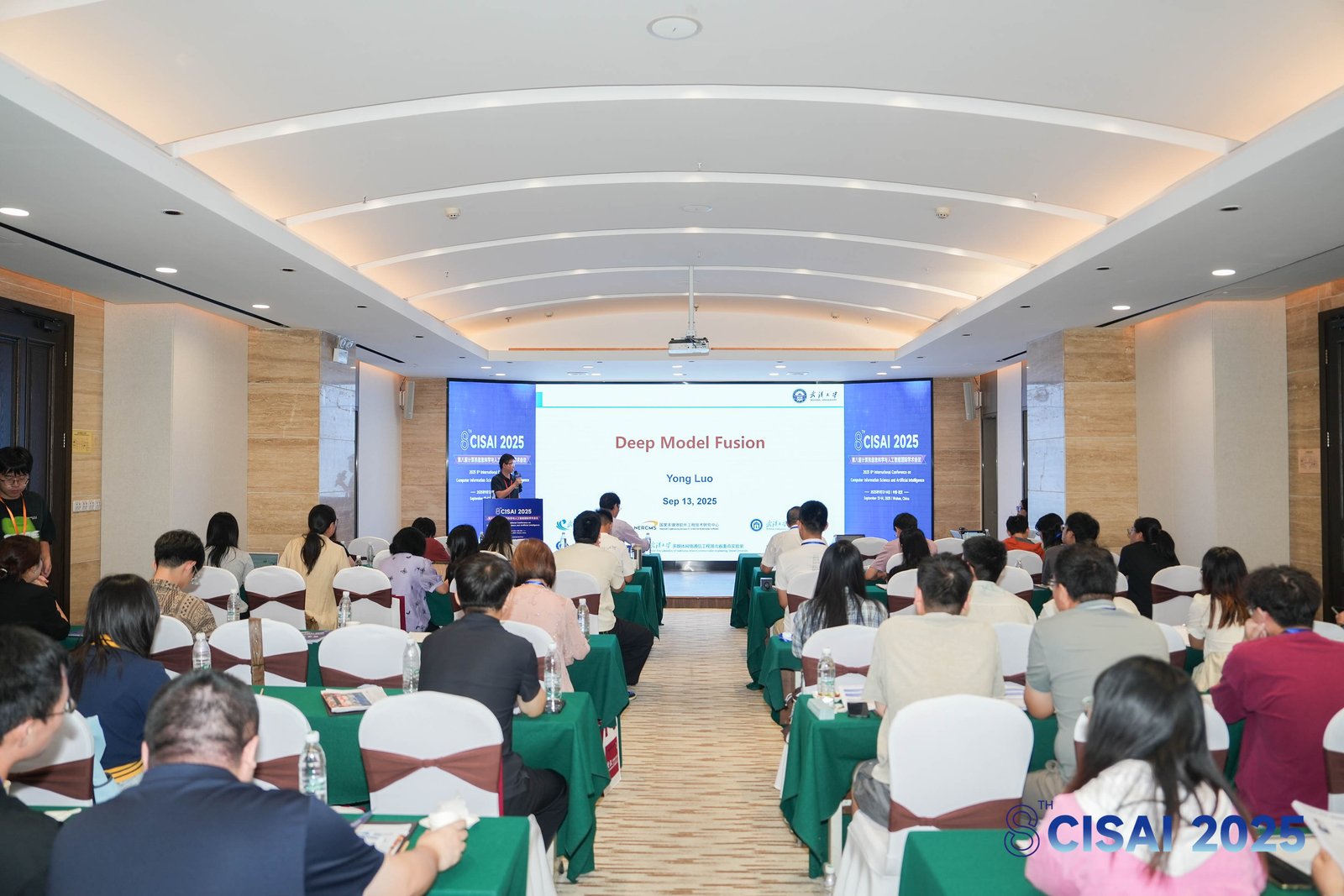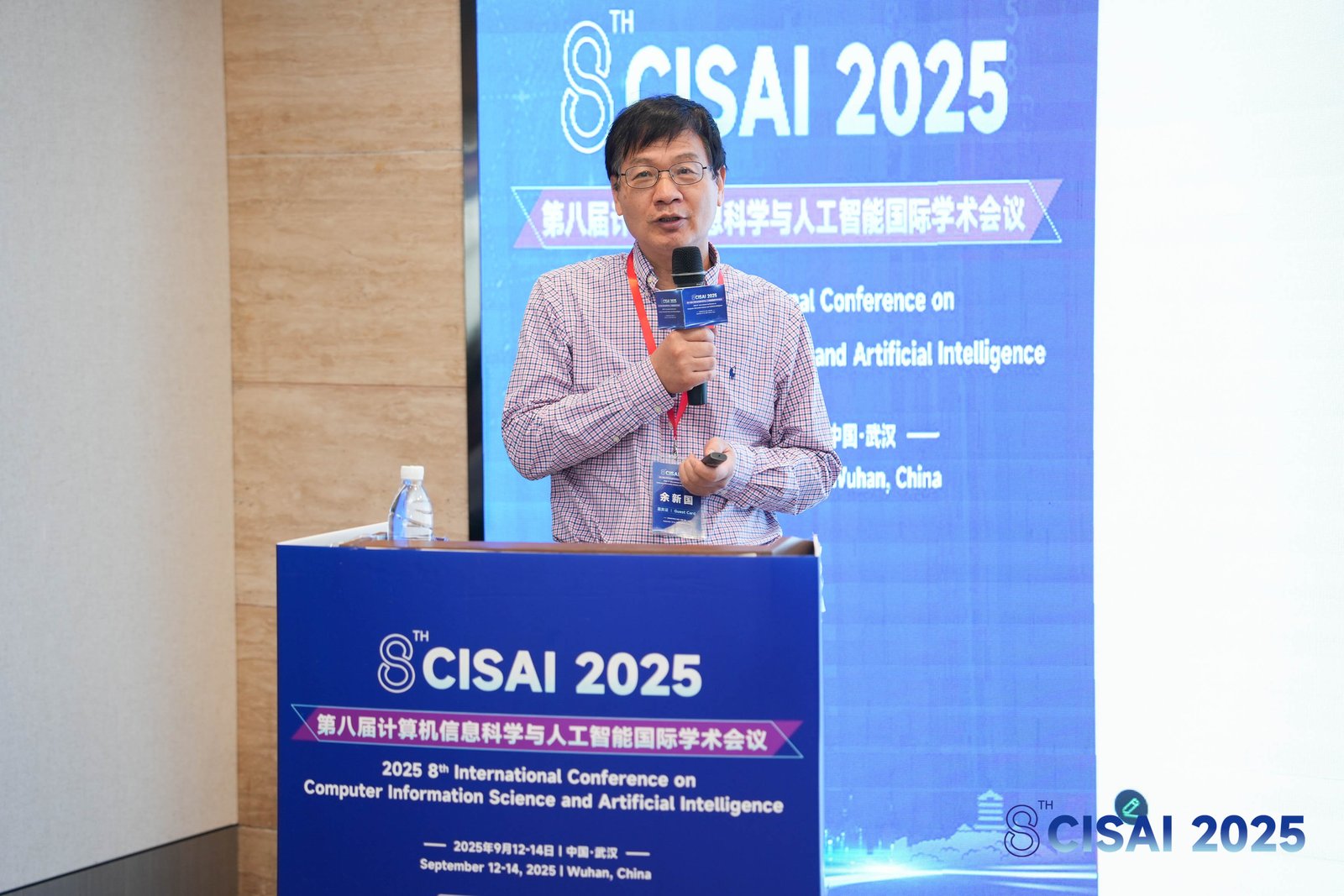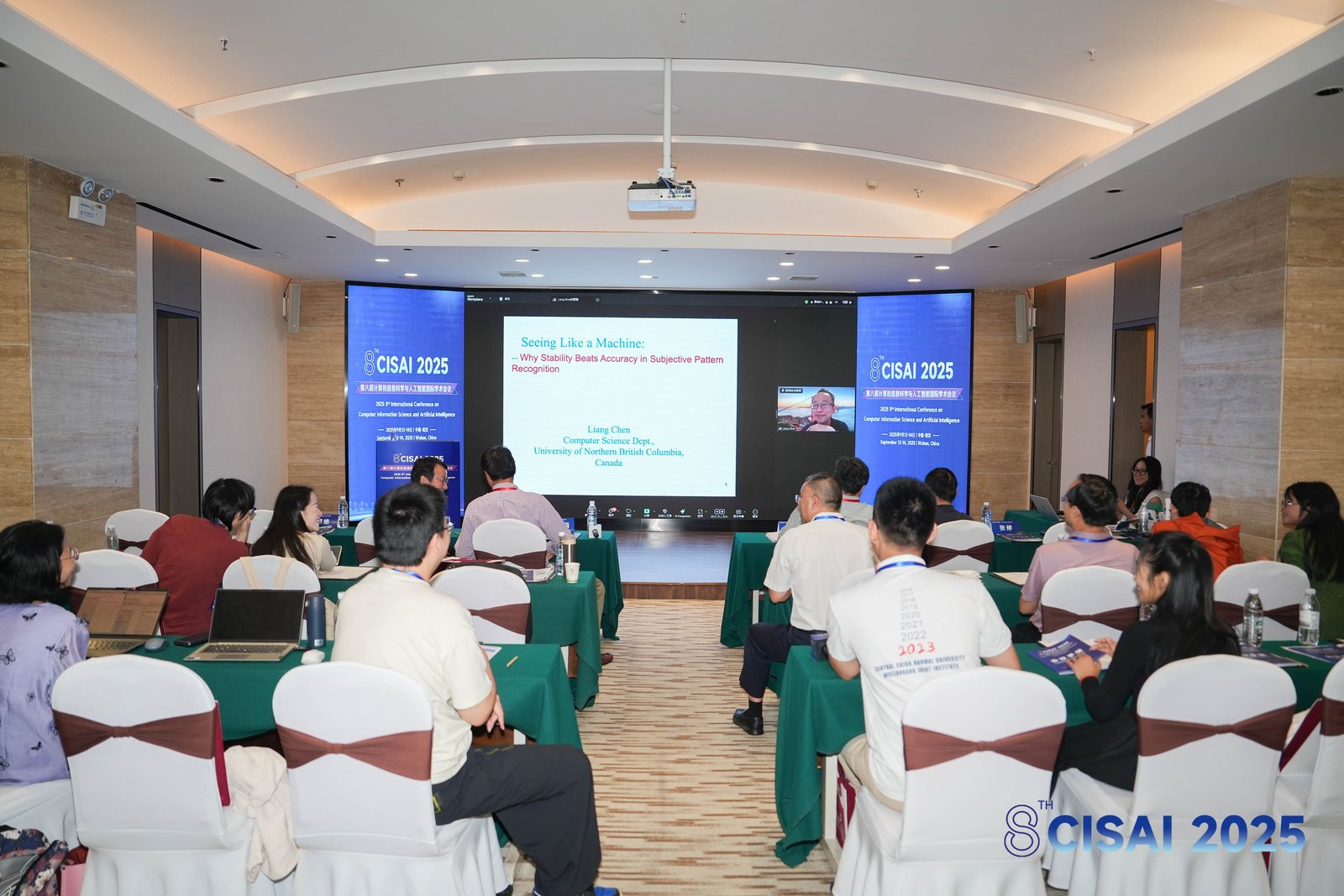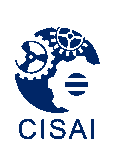

The 8th International Conference on Computer Information Science and Artificial Intelligence (CISAI 2025) was successfully convened in Wuhan, Hubei. The conference was hosted by the Hubei Society of Artificial Intelligence for Research and Education, with support from multiple academic institutions including the Faculty of Artificial Intelligence in Education at Central China Normal University, Wuhan University of Science and Technology, and Wuhan University of Technology. AiScholar provided comprehensive technical support throughout the event.
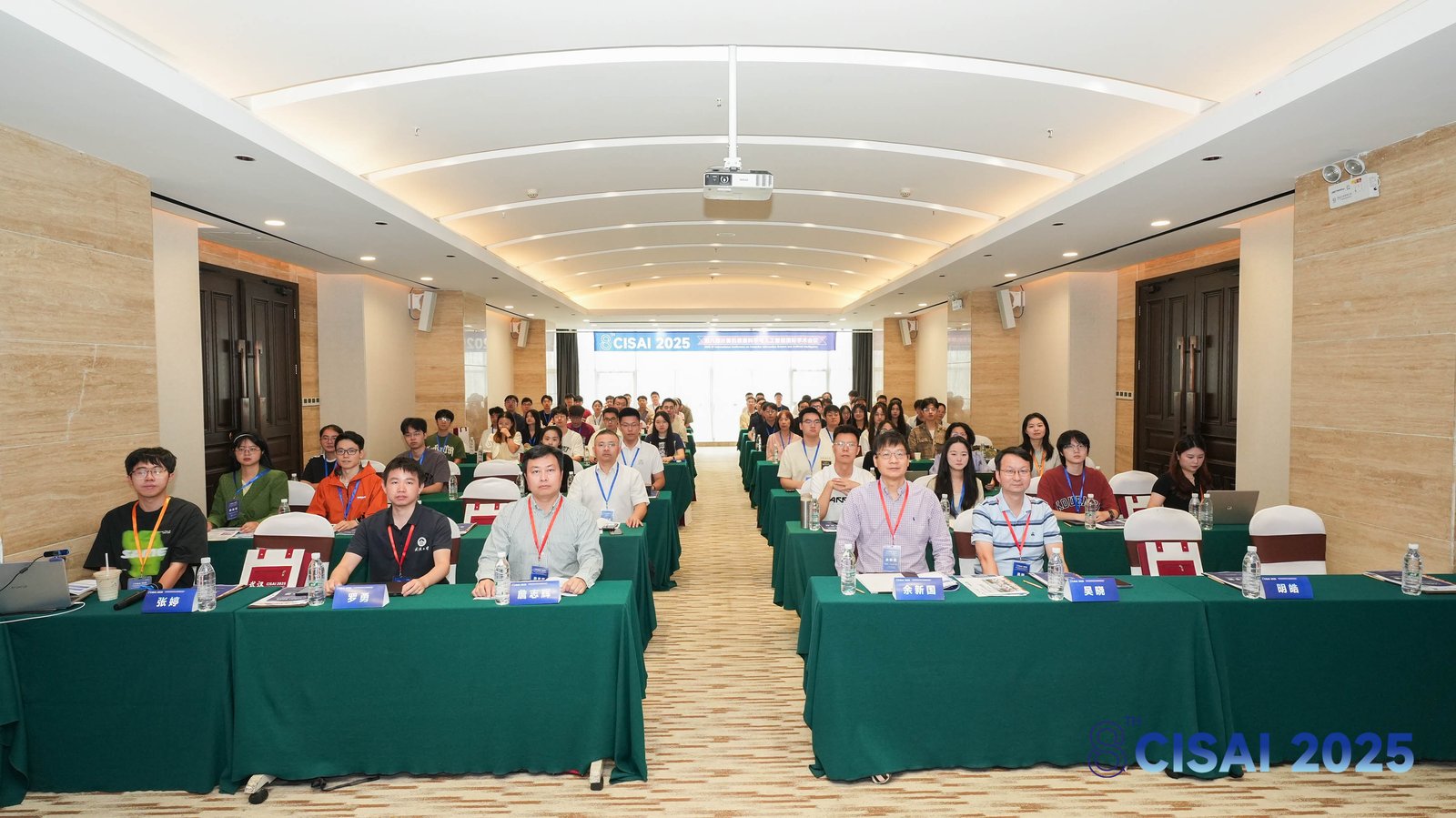
The conference brought together over a hundred experts, scholars, and industry representatives from universities, research institutes, and enterprises both in China and abroad. Participants engaged in in-depth exchanges on the latest research findings and development trends in computer information science, artificial intelligence, and their cross-disciplinary applications.
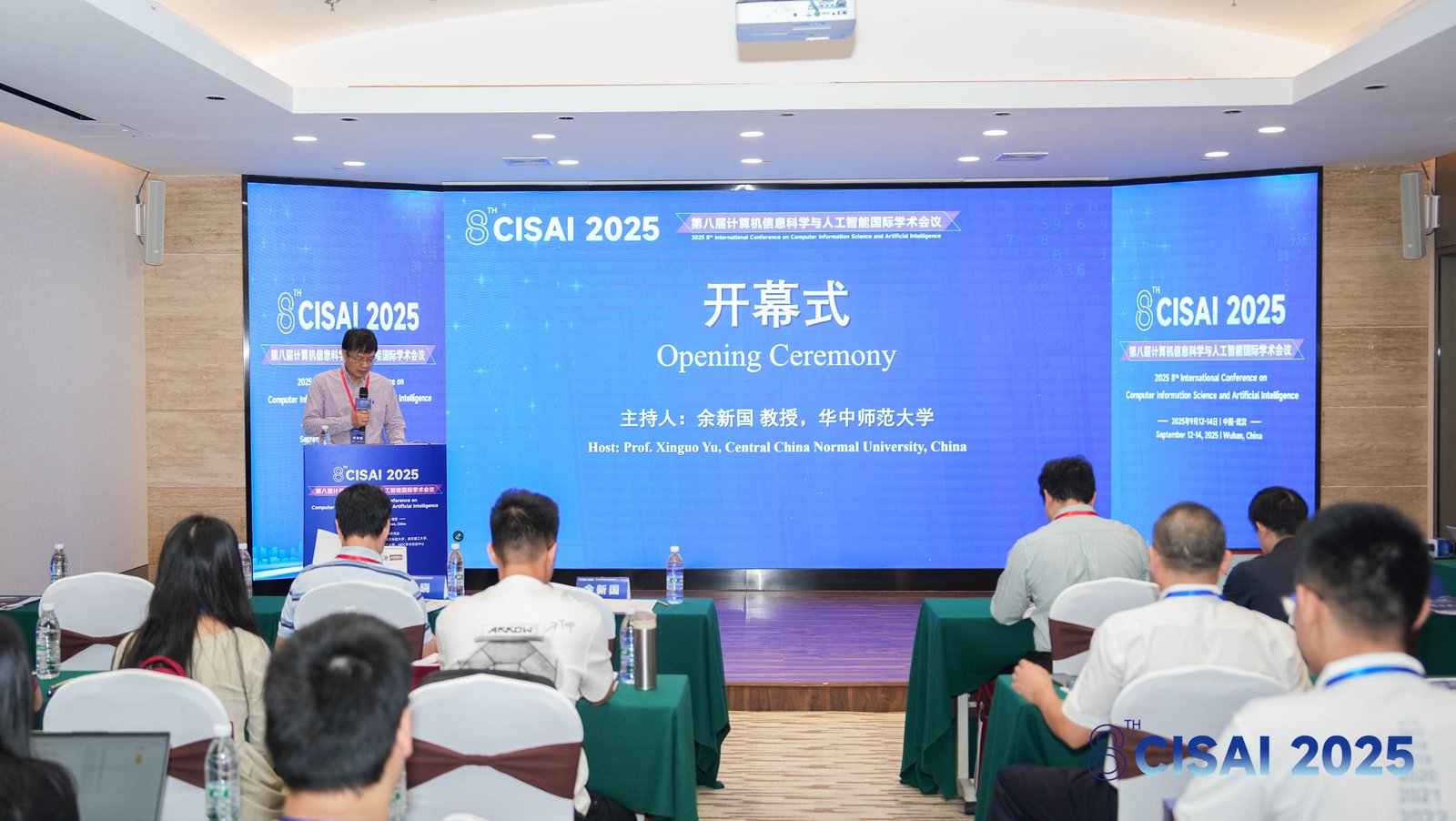
Adopting a hybrid online and offline format, the conference featured various presentation forms, including keynote speeches, oral presentations, and poster sessions. These sessions highlighted recent theoretical advances and innovative applications in intelligent computing, machine learning, human-computer interaction, data mining, and related fields.
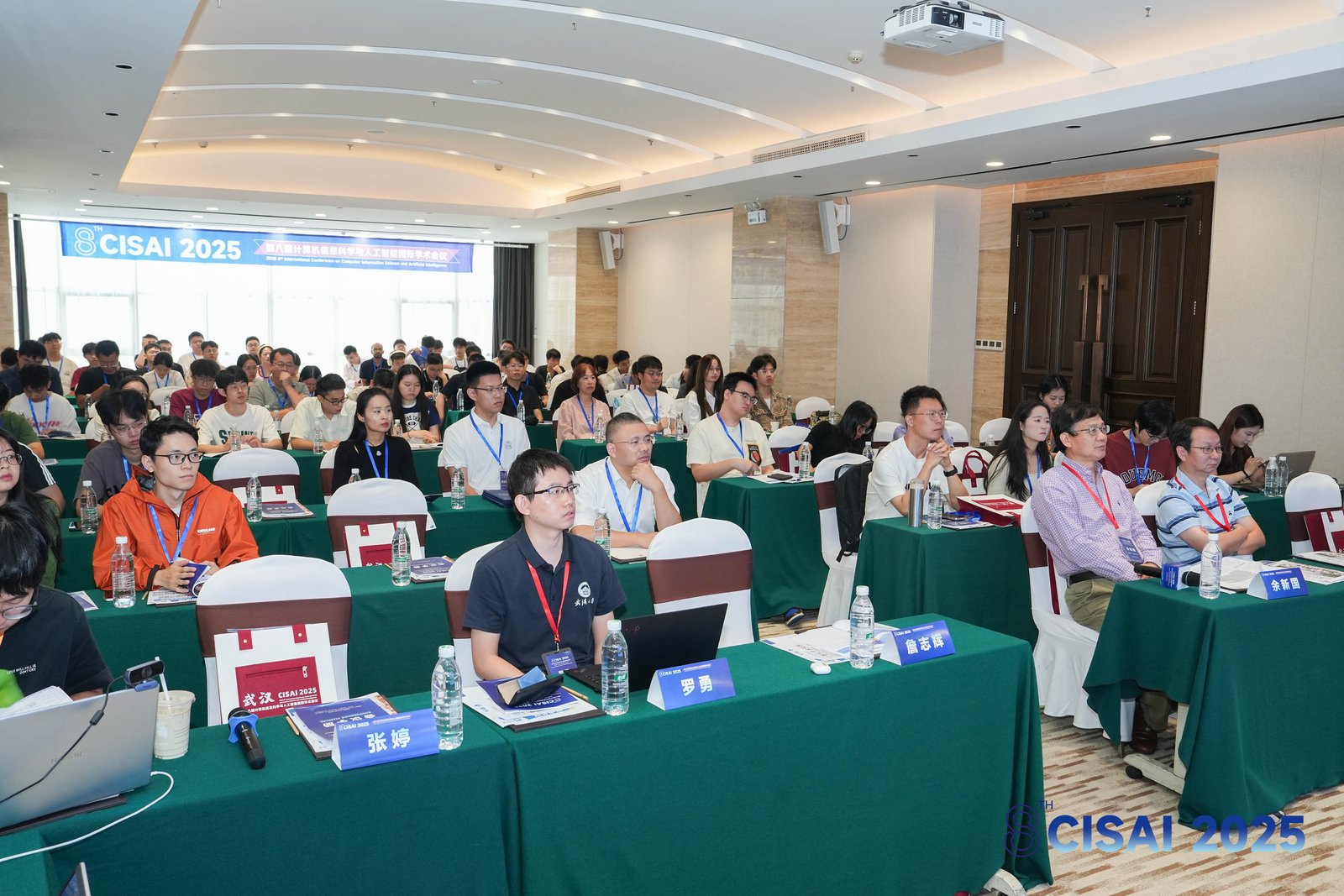
During the conference, five distinguished experts delivered keynote addresses. Professor Zhi-Hui Zhan (IEEE Fellow, Nankai University), Professor Xiao Wu (Southwest Jiaotong University), Professor Yong Luo (Wuhan University), Professor Xinguo Yu (Central China Normal University), and Professor Liang Chen (University of Northern British Columbia, Canada) shared valuable insights on cutting-edge topics such as data-driven evolutionary computation in AI, human-centered interaction detection, deep model integration, AI-driven paradigm shifts in work, and machine perception with stability recognition.
Speech Title:Data-Driven Evolutionary Computation in Artificial Intelligence: What to Drive and How to Drive |
Speech Title:Human-Centered Interaction Detection and Applications |
Yong Luo, Wu han University, China Speech Title:Deep Model Fusion |
XInguo Yu, Central China Normal University, China Speech Title:AI and the Transformation of Work Paradigms |
Liang Chen, University of Northern British Columbia (UNBC), Canada Speech Title: Seeing Like a Machine: Why Stability Beats Accuracy in Subjective Recognition | |
In addition to the keynote speeches, the conference included 18 high-quality oral presentations covering a wide range of hot research areas, including computer vision, multimedia analysis, intelligent systems, and innovative applications of machine learning across various domains. Young scholars from institutions such as Nanjing Normal University, Shanghai Maritime University, the Chinese Academy of Sciences, the University of New South Wales, and the National University of Defense Technology presented their research results. Furthermore, more than ten paper authors participated in the poster session, demonstrating strong scientific vitality and innovation potential.
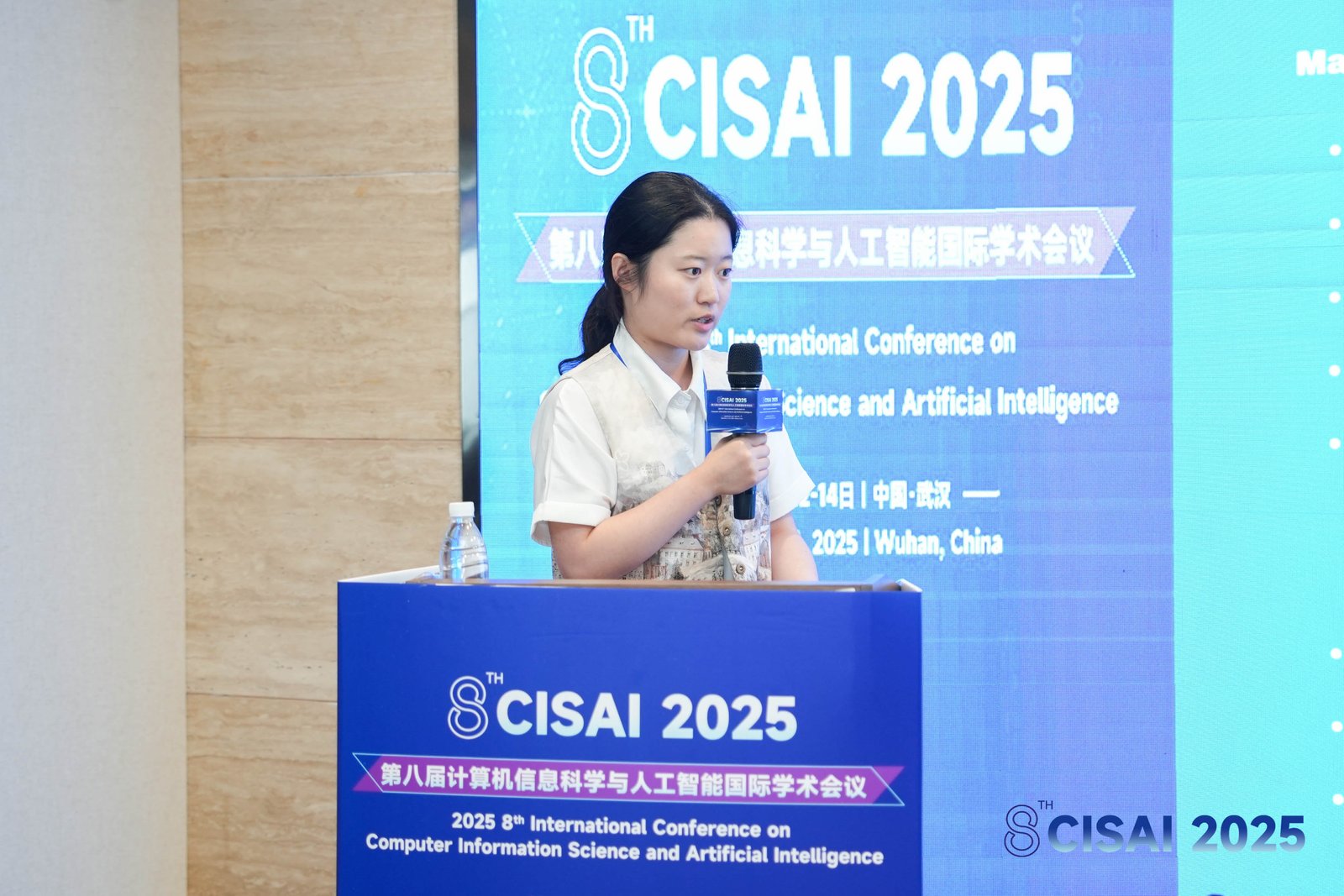 | 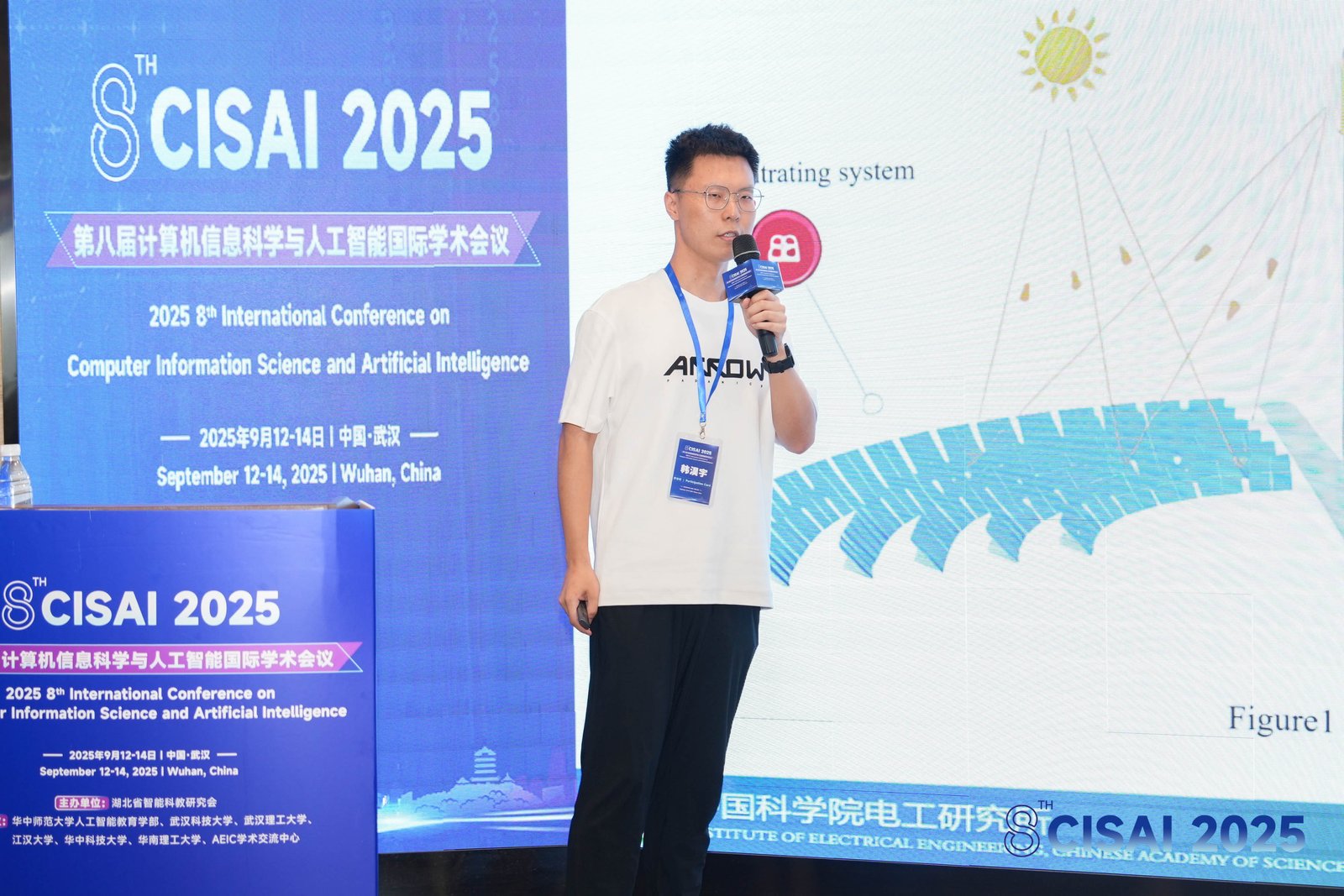 | 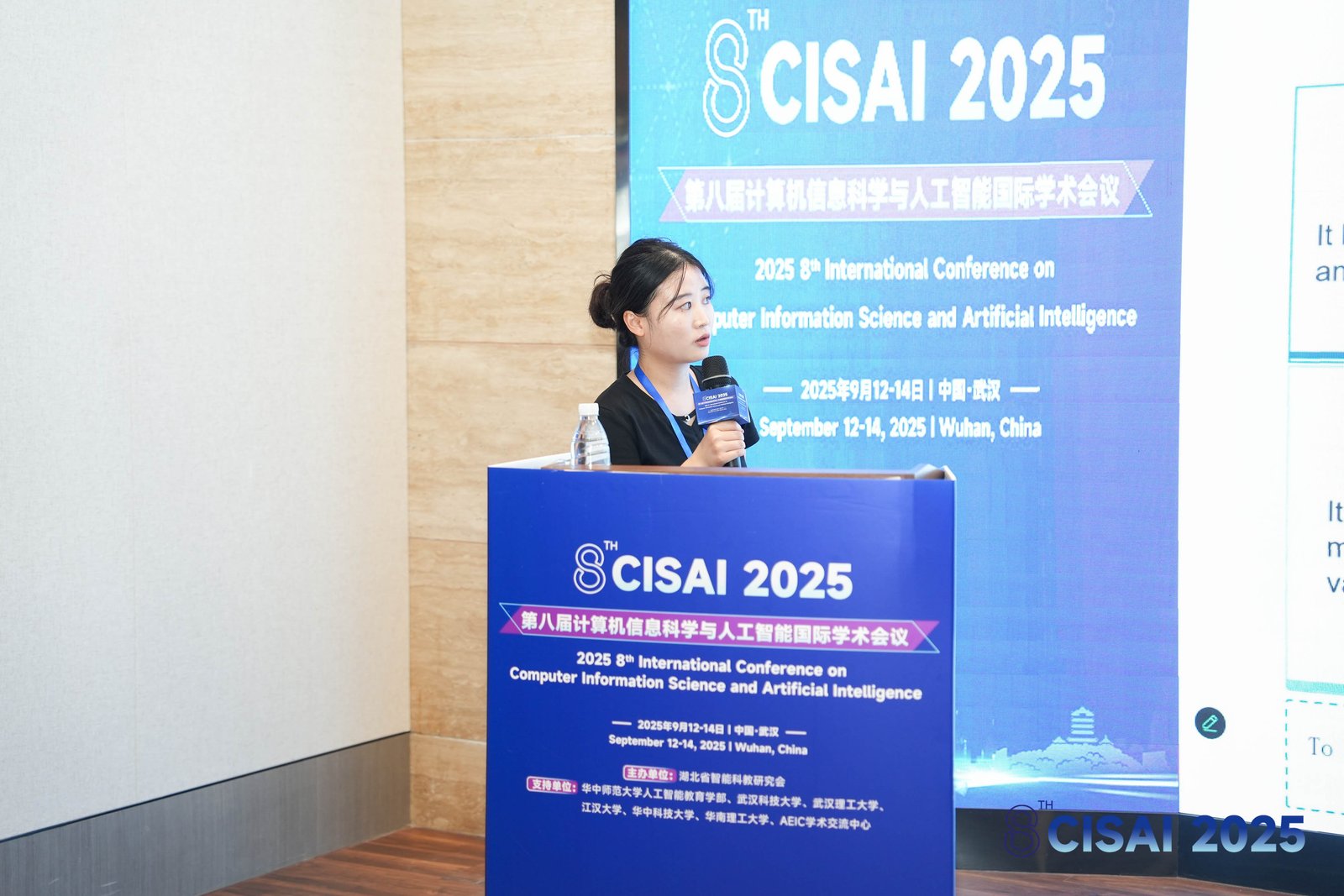 |
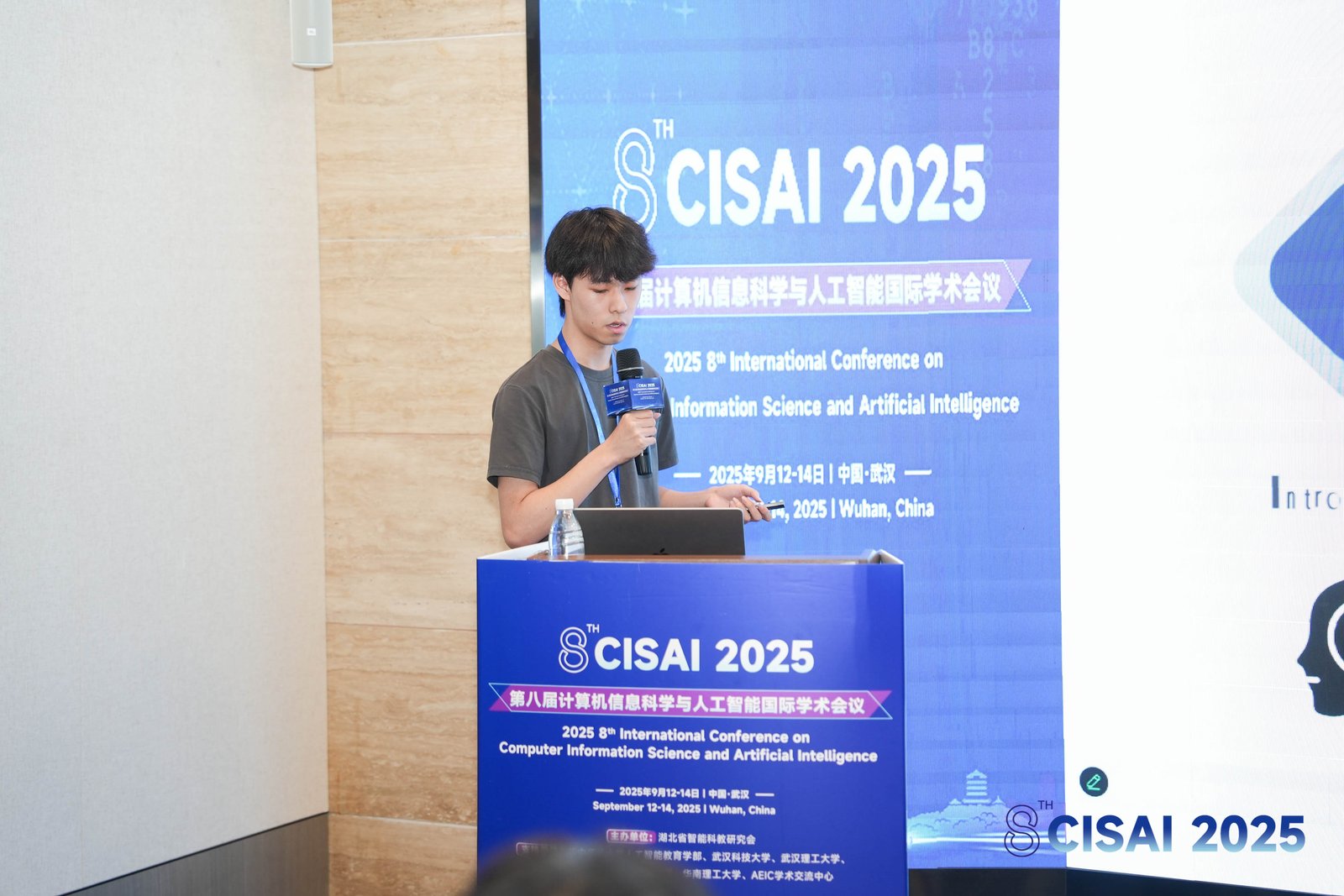 | 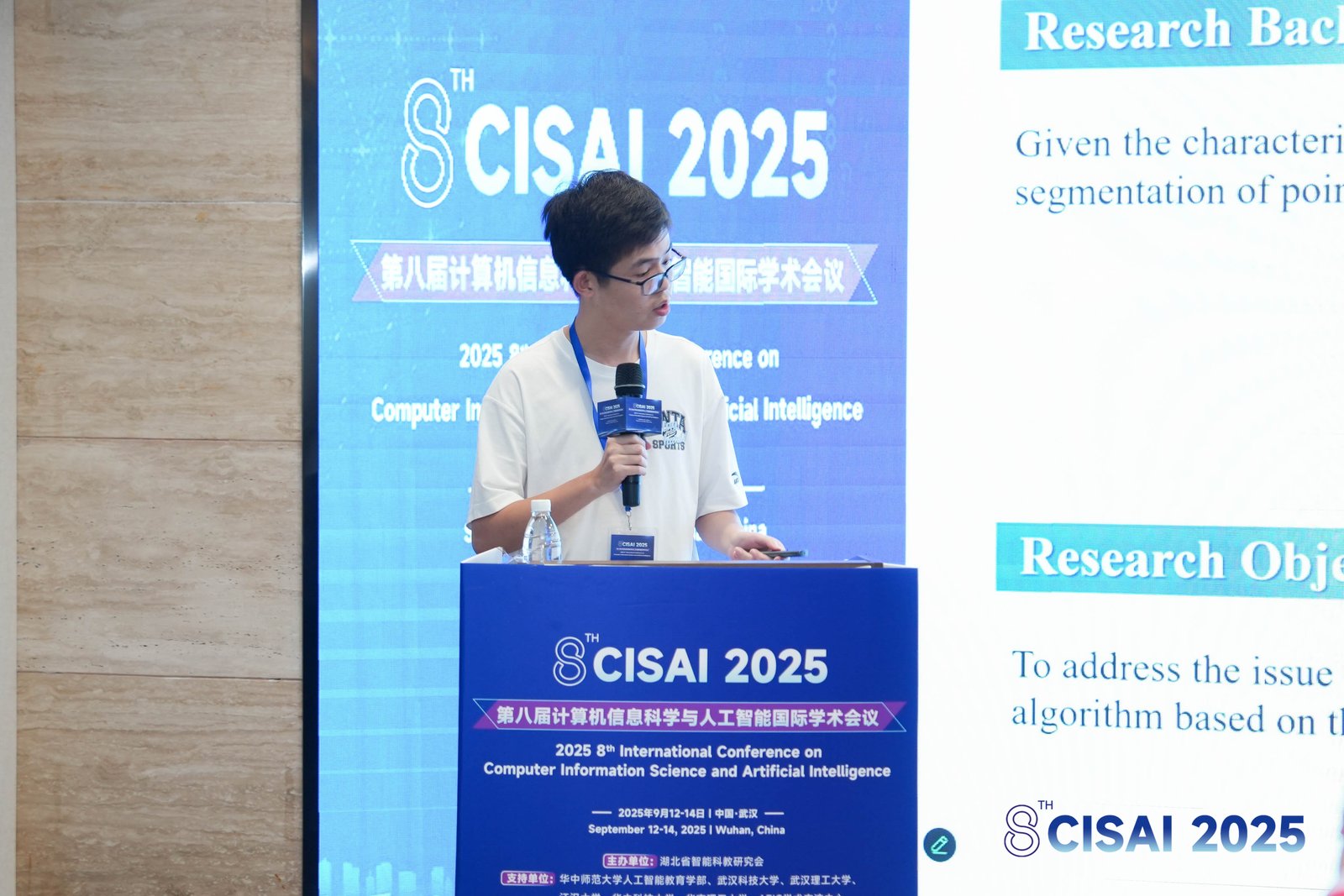 | 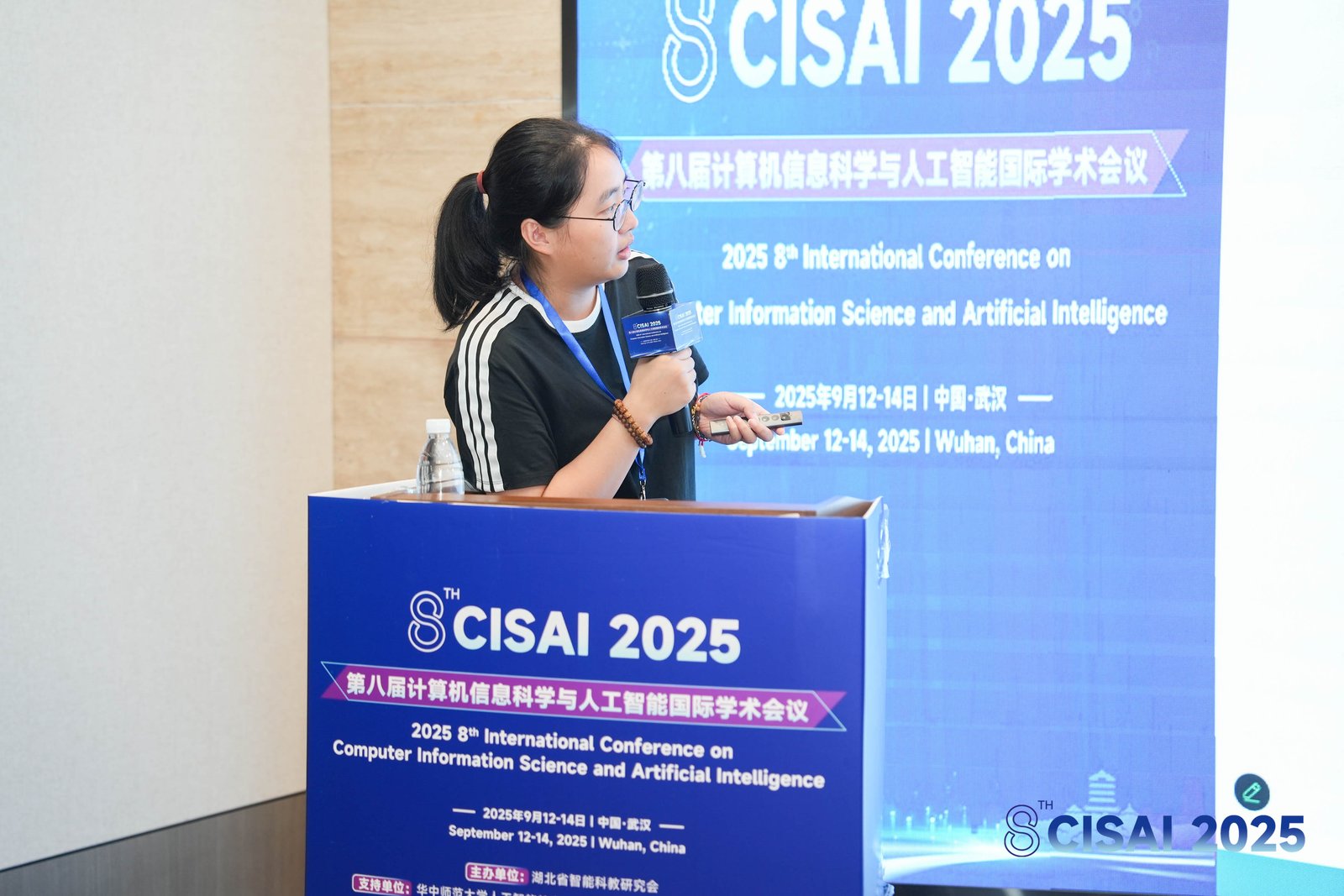 |
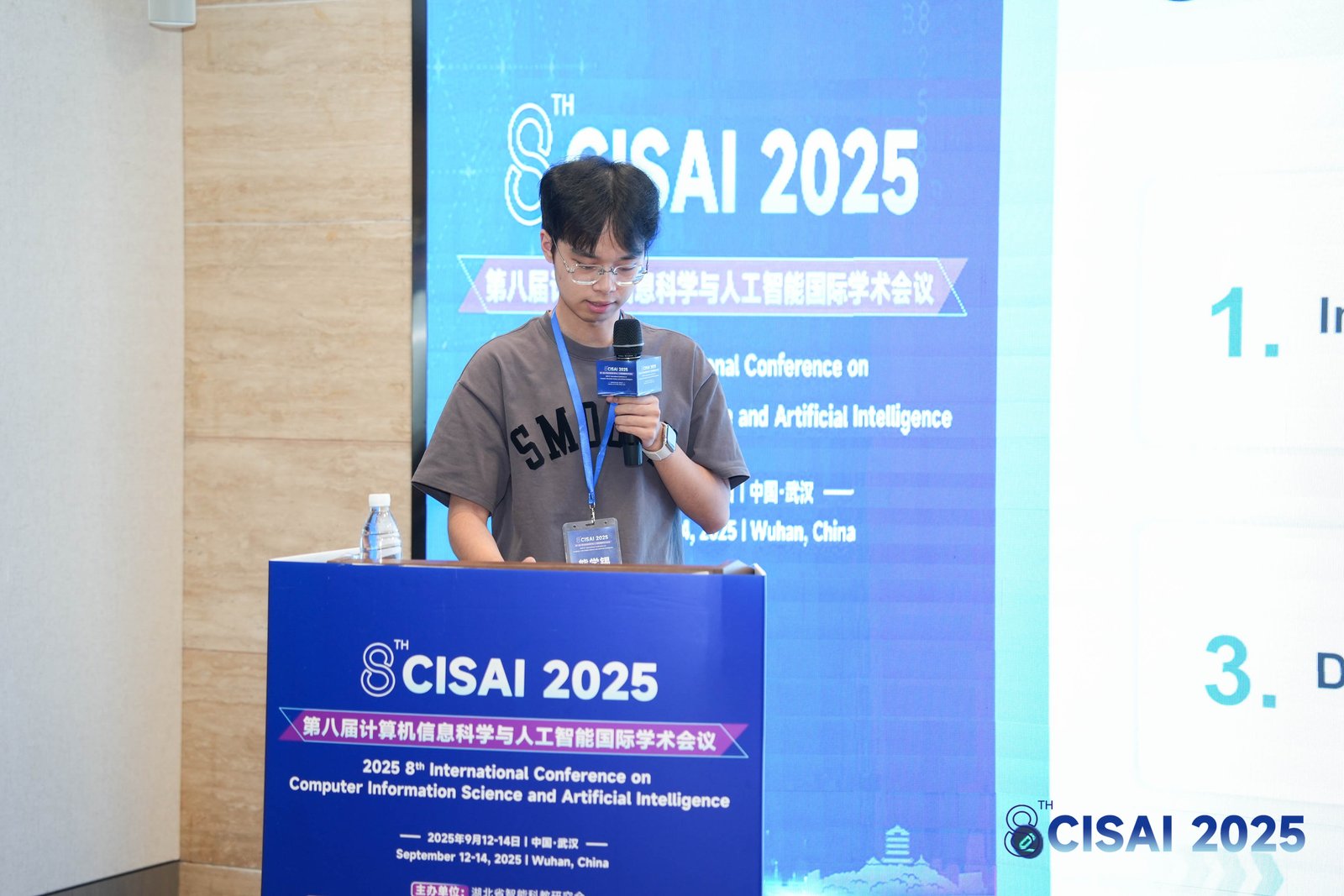 | 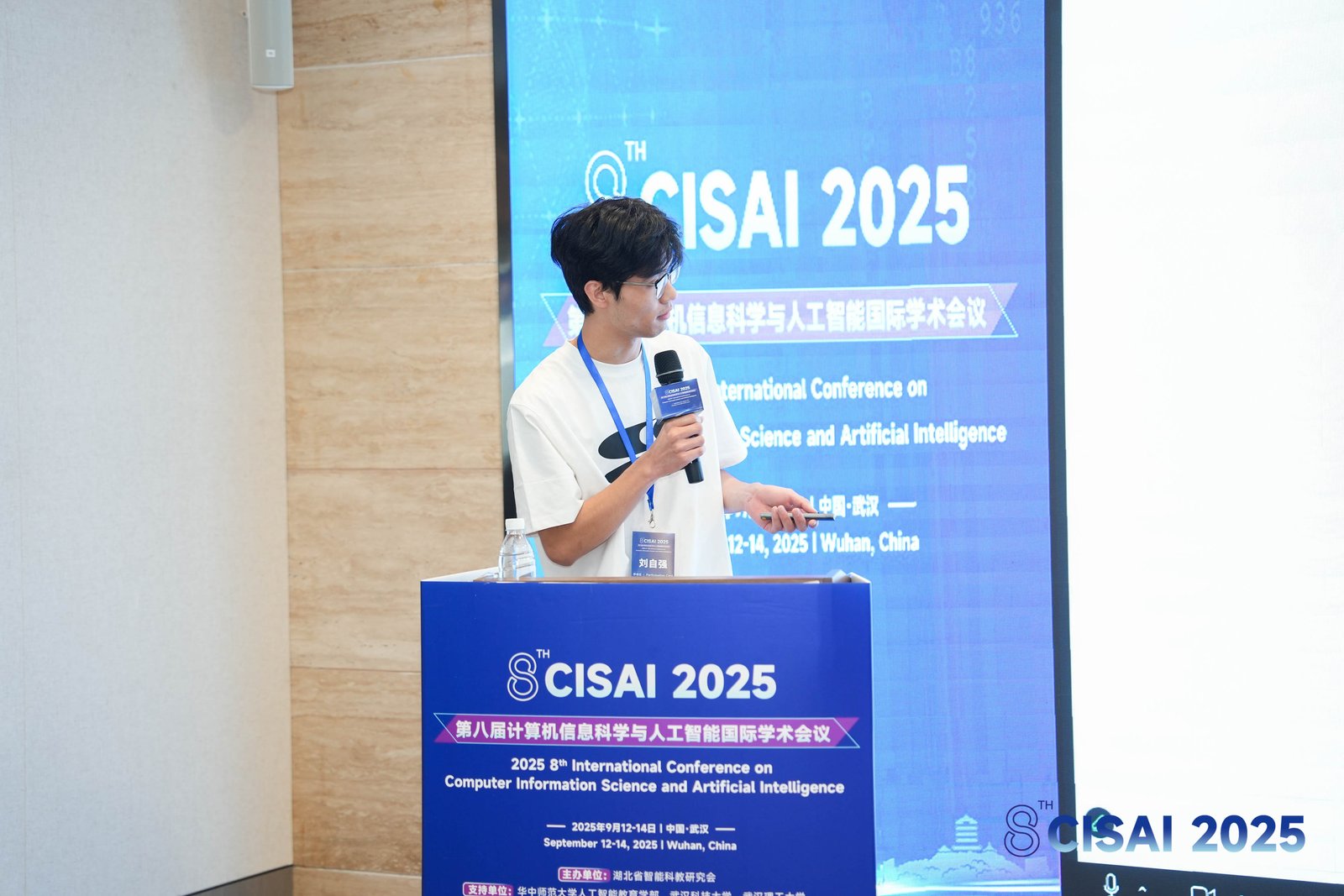 | 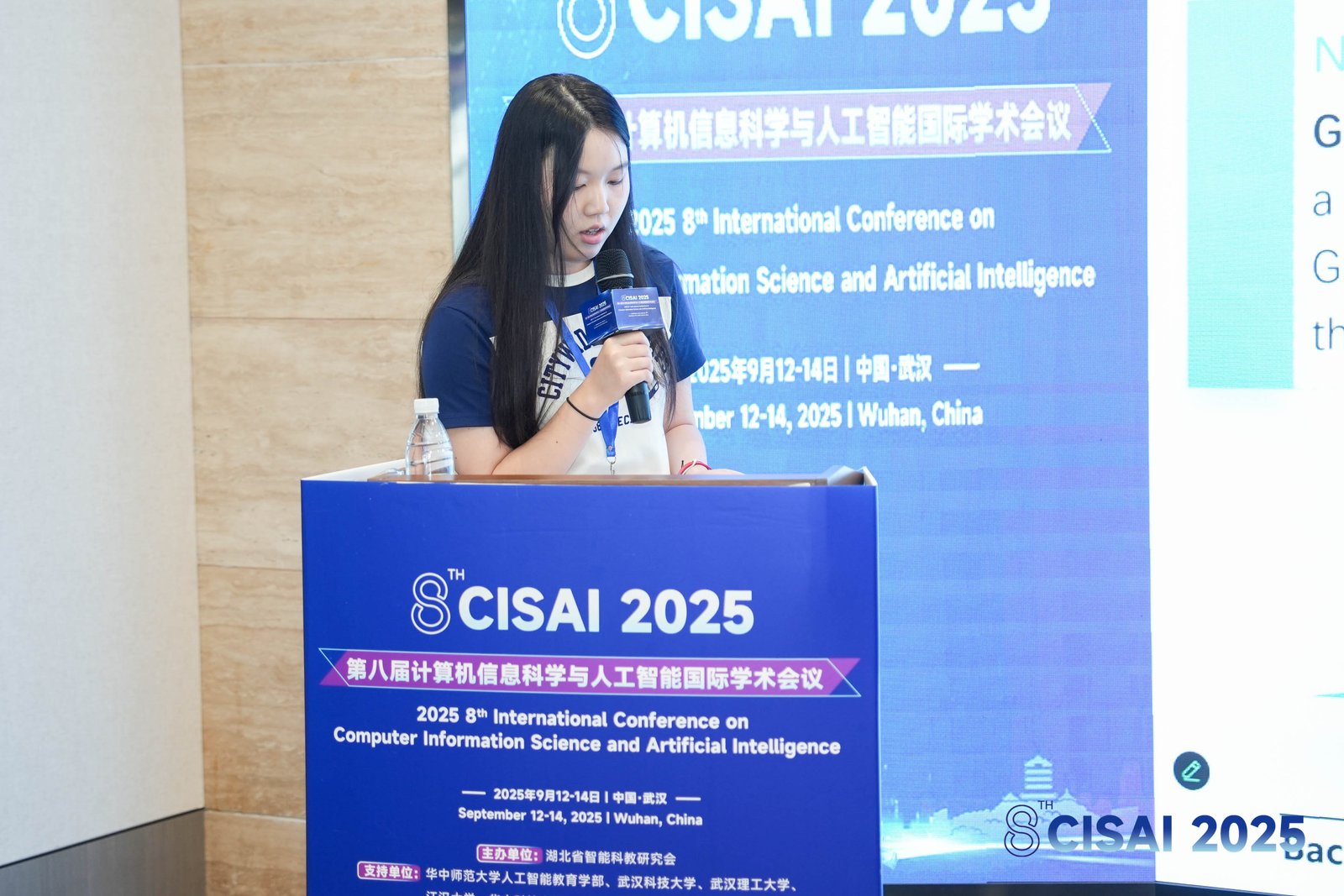 |
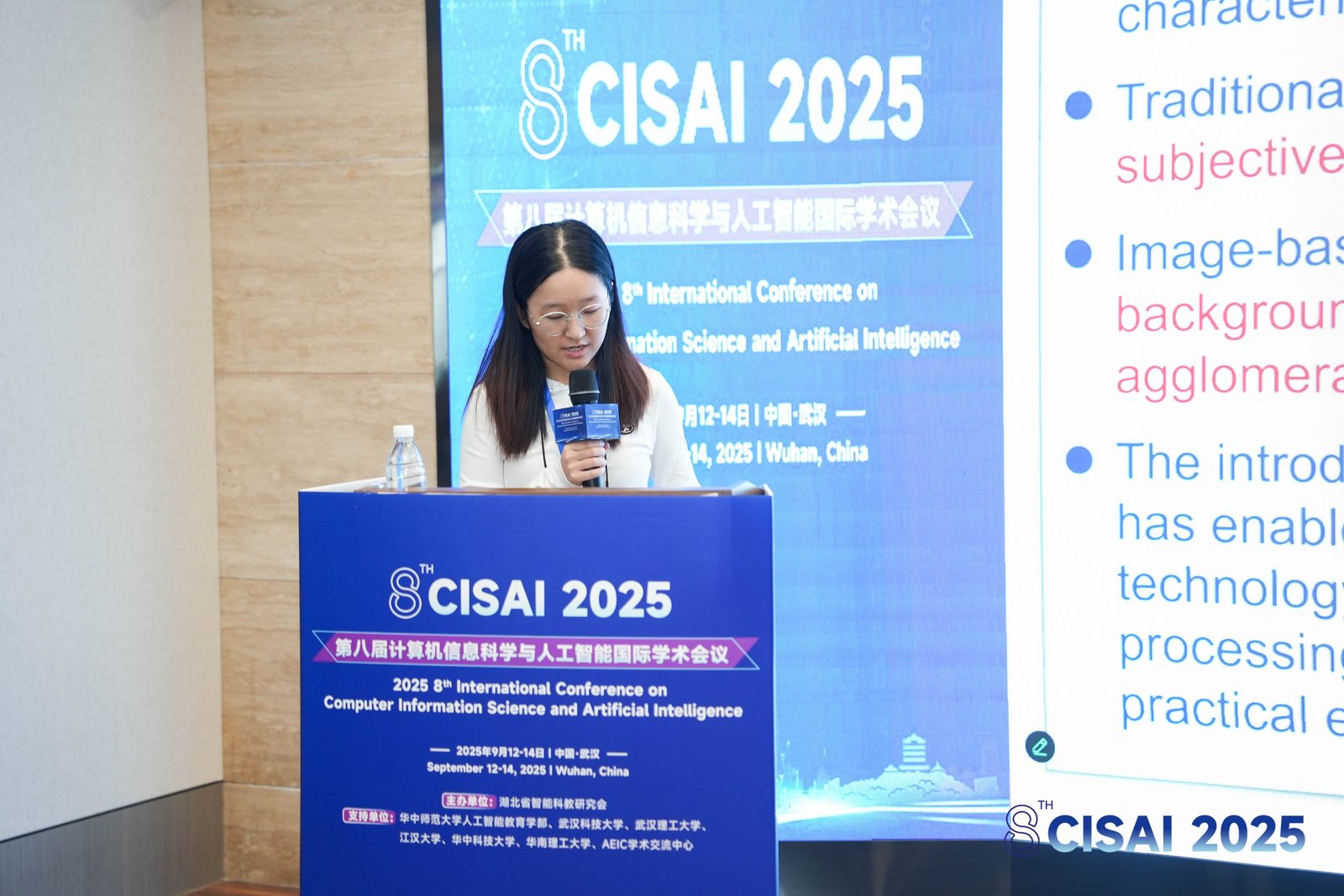 | 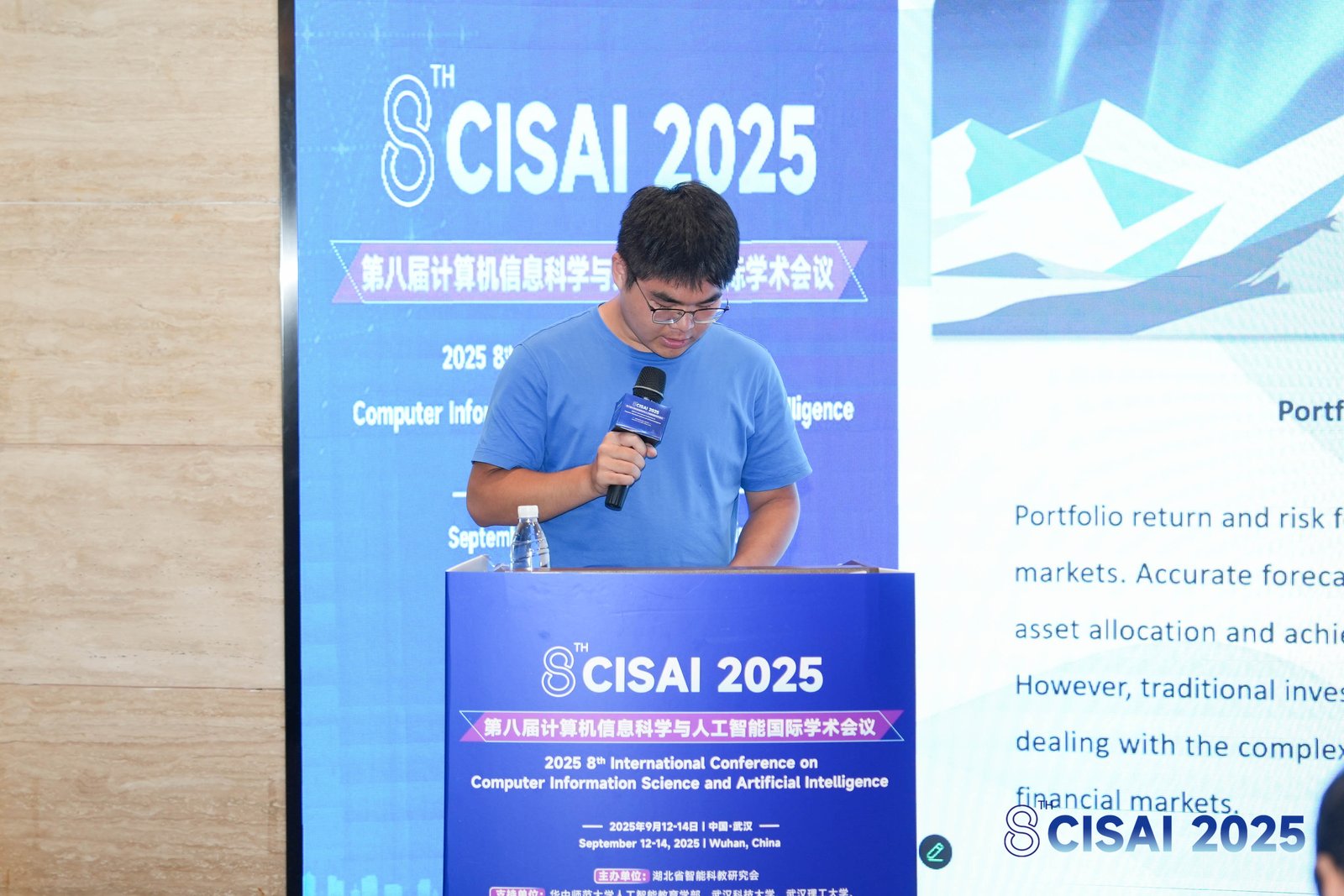 | 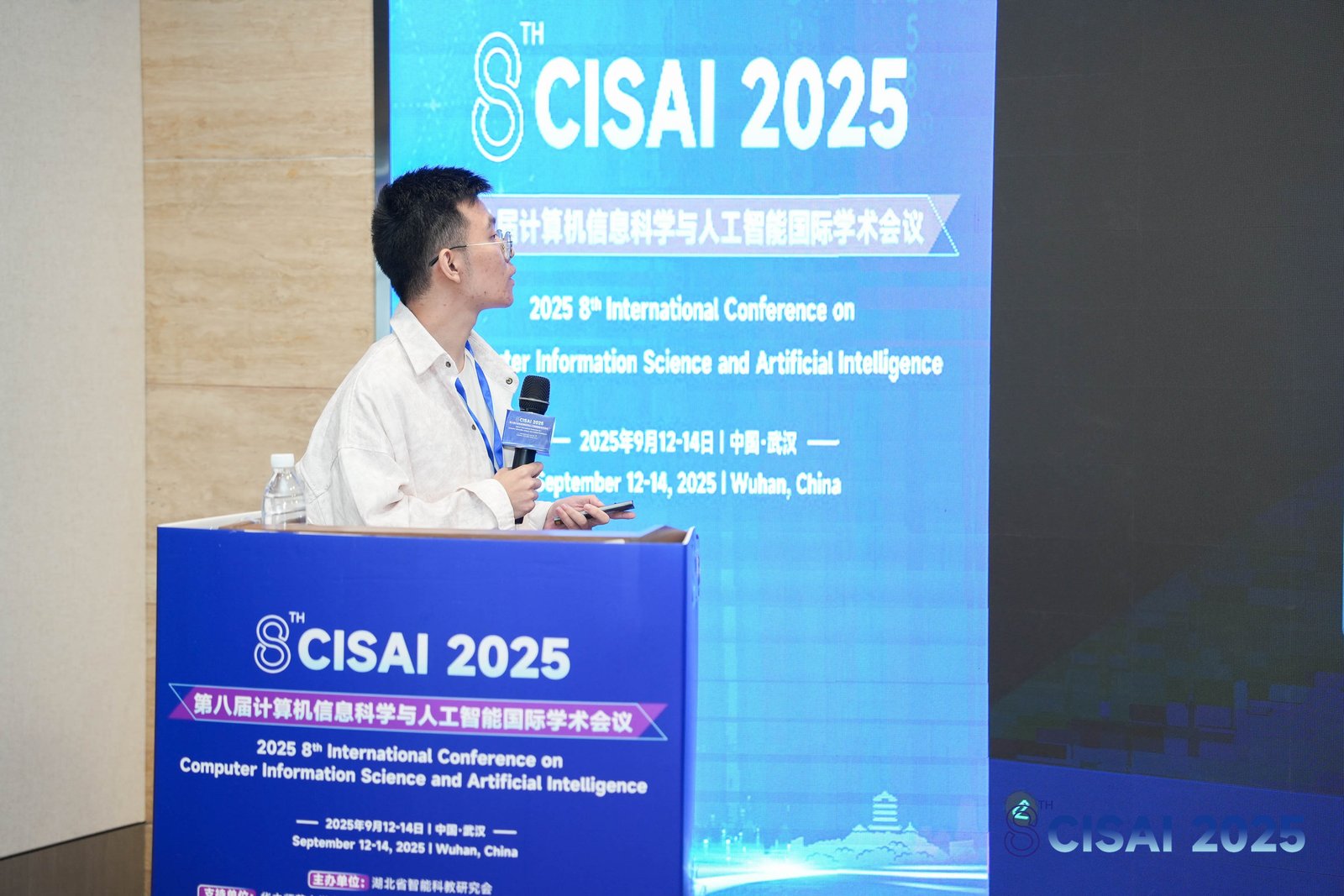 |
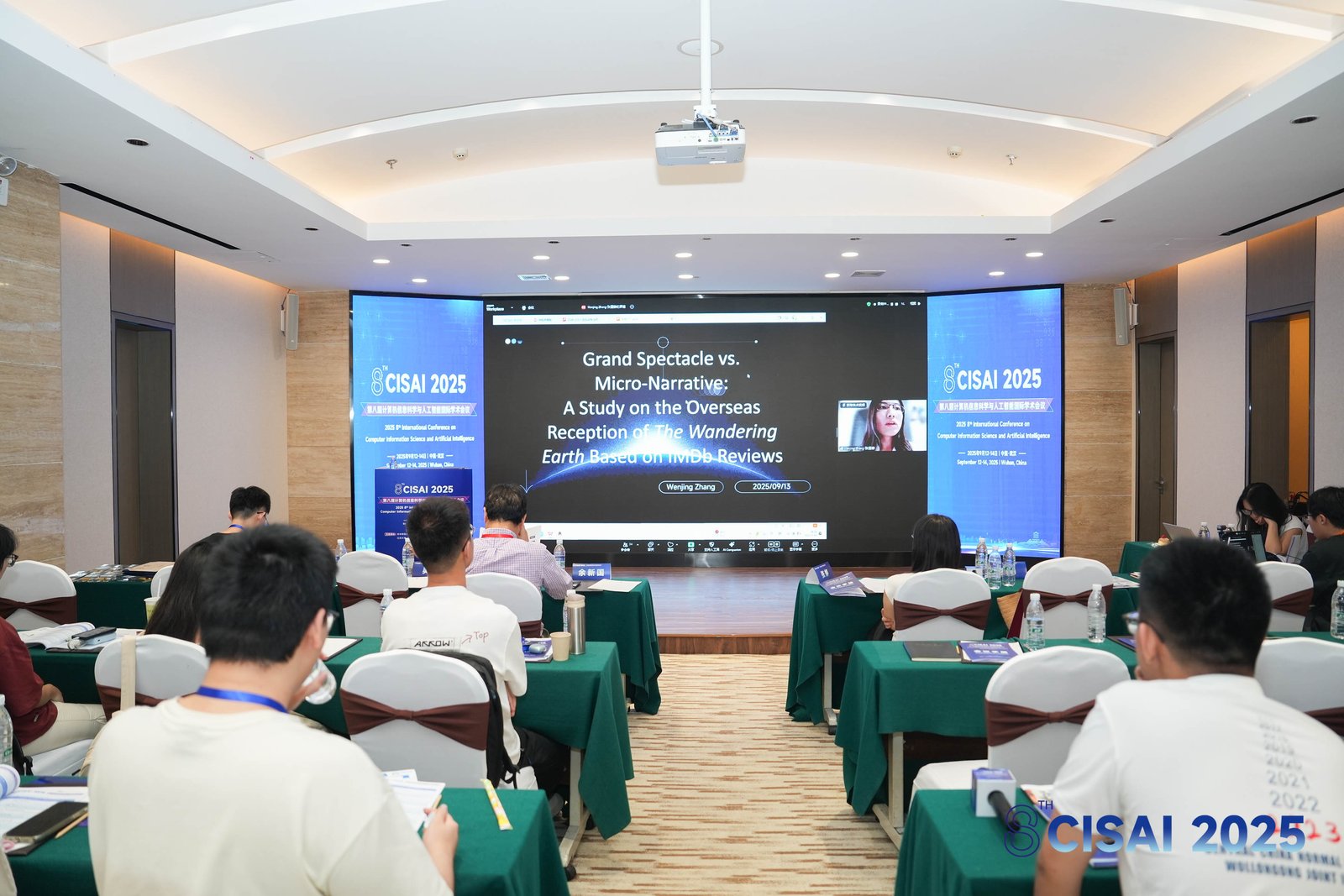 | 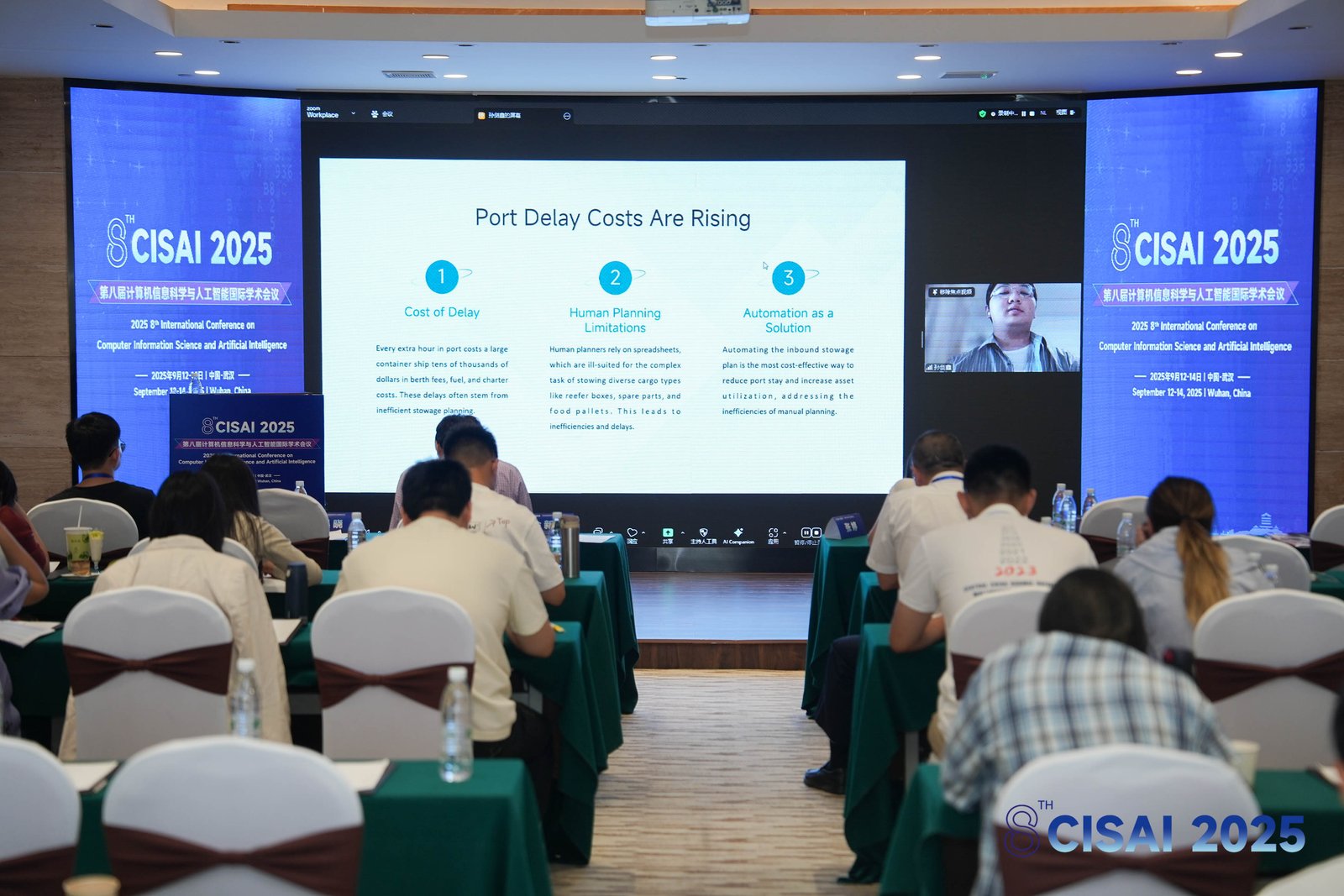 | 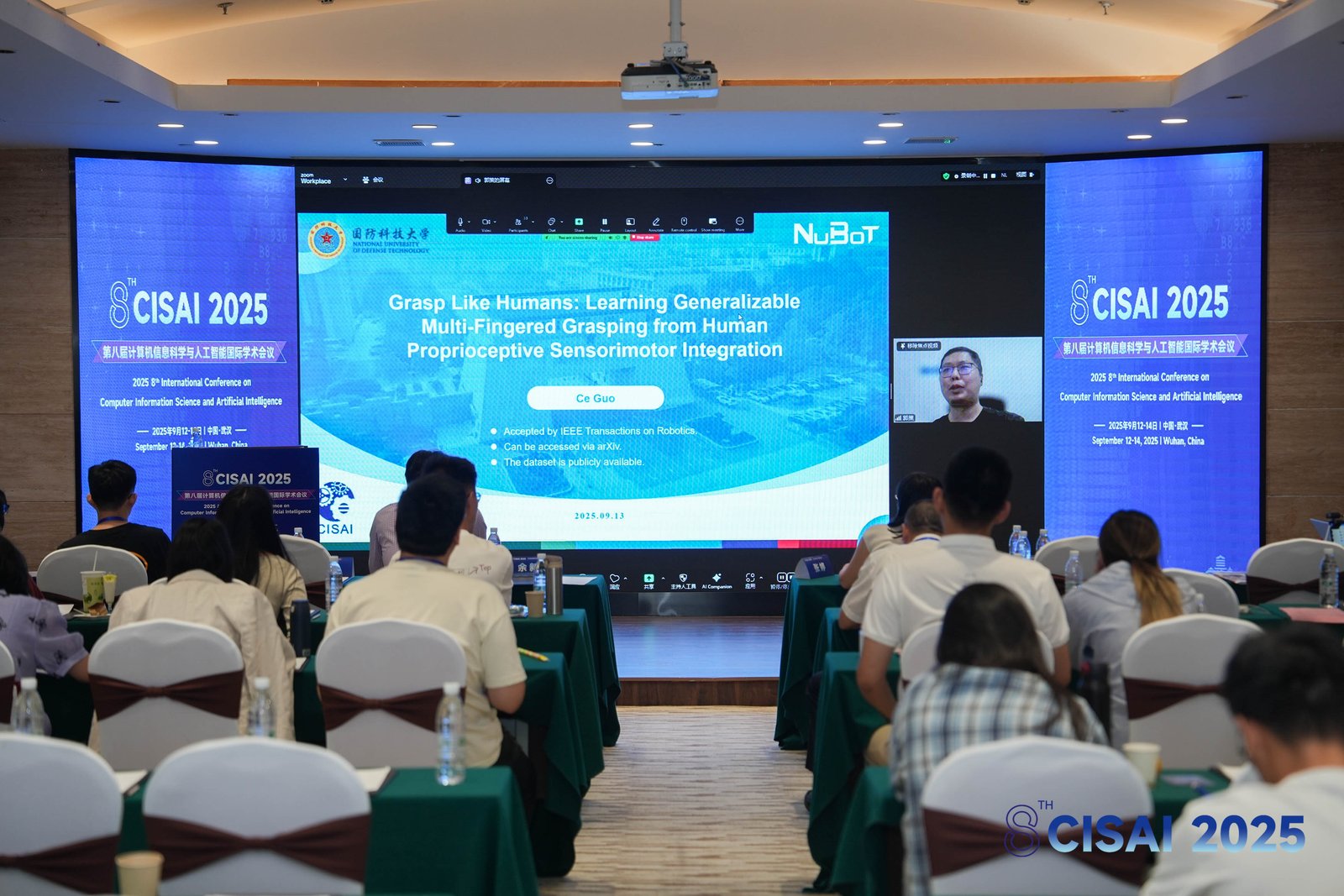 |
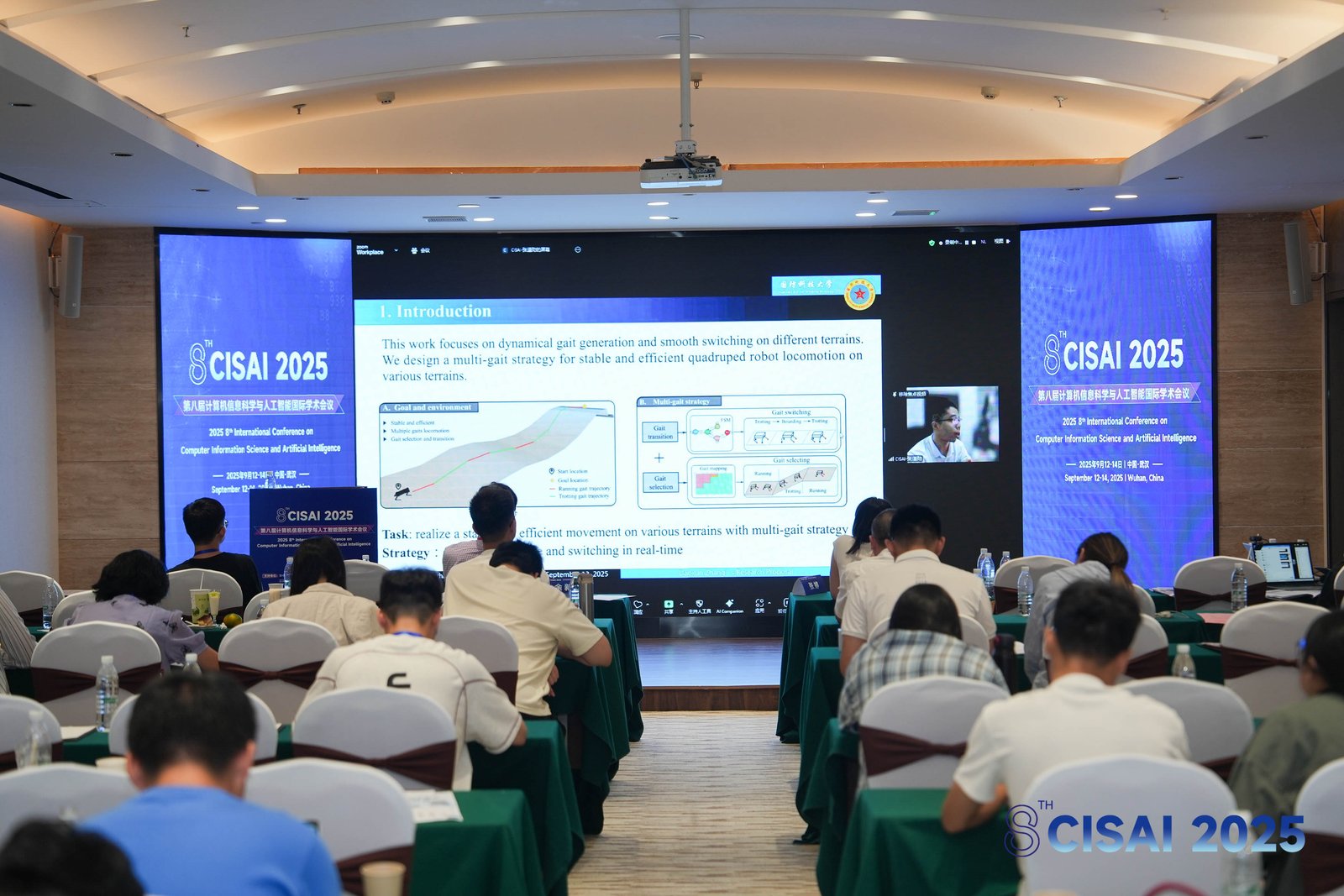 | 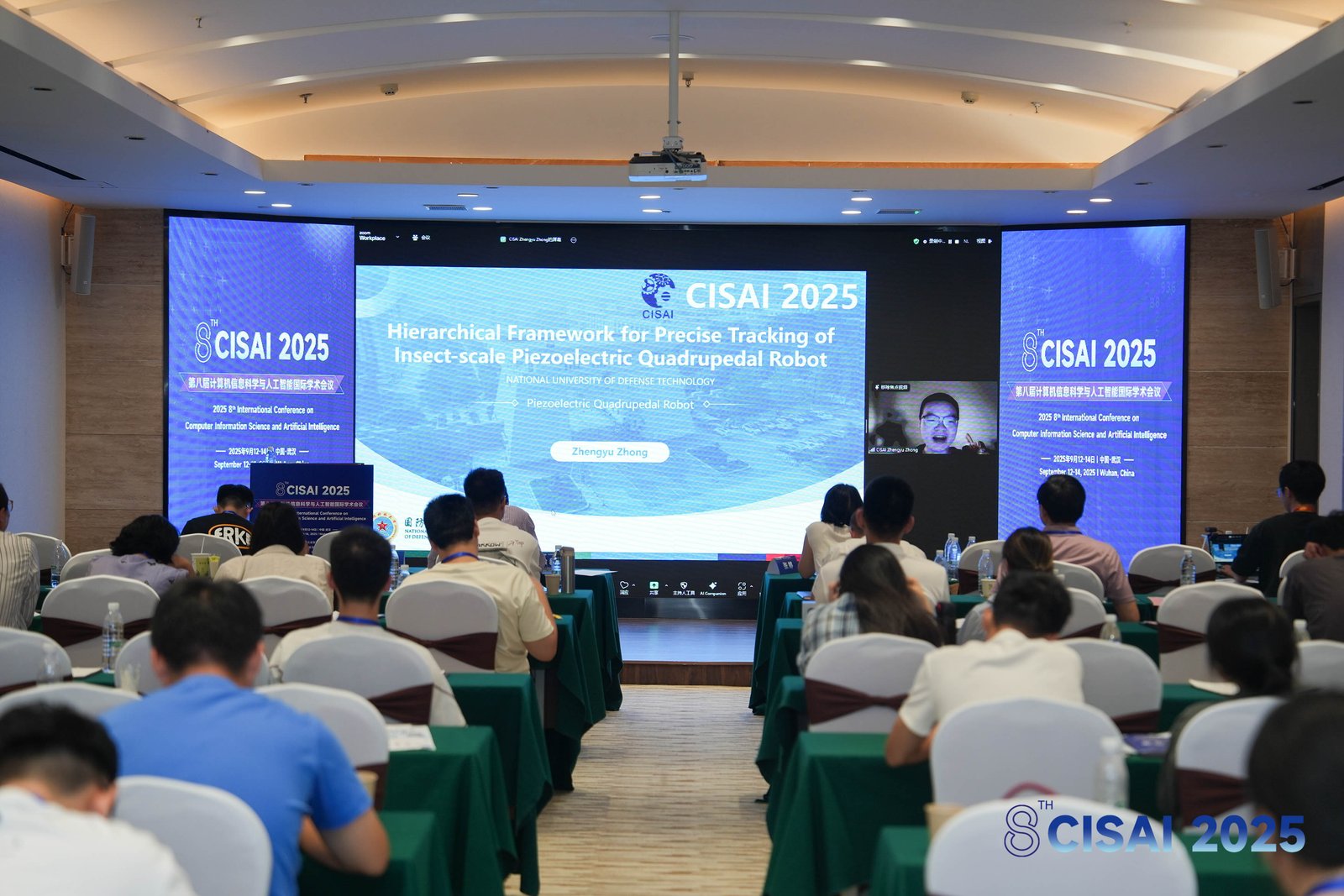 | 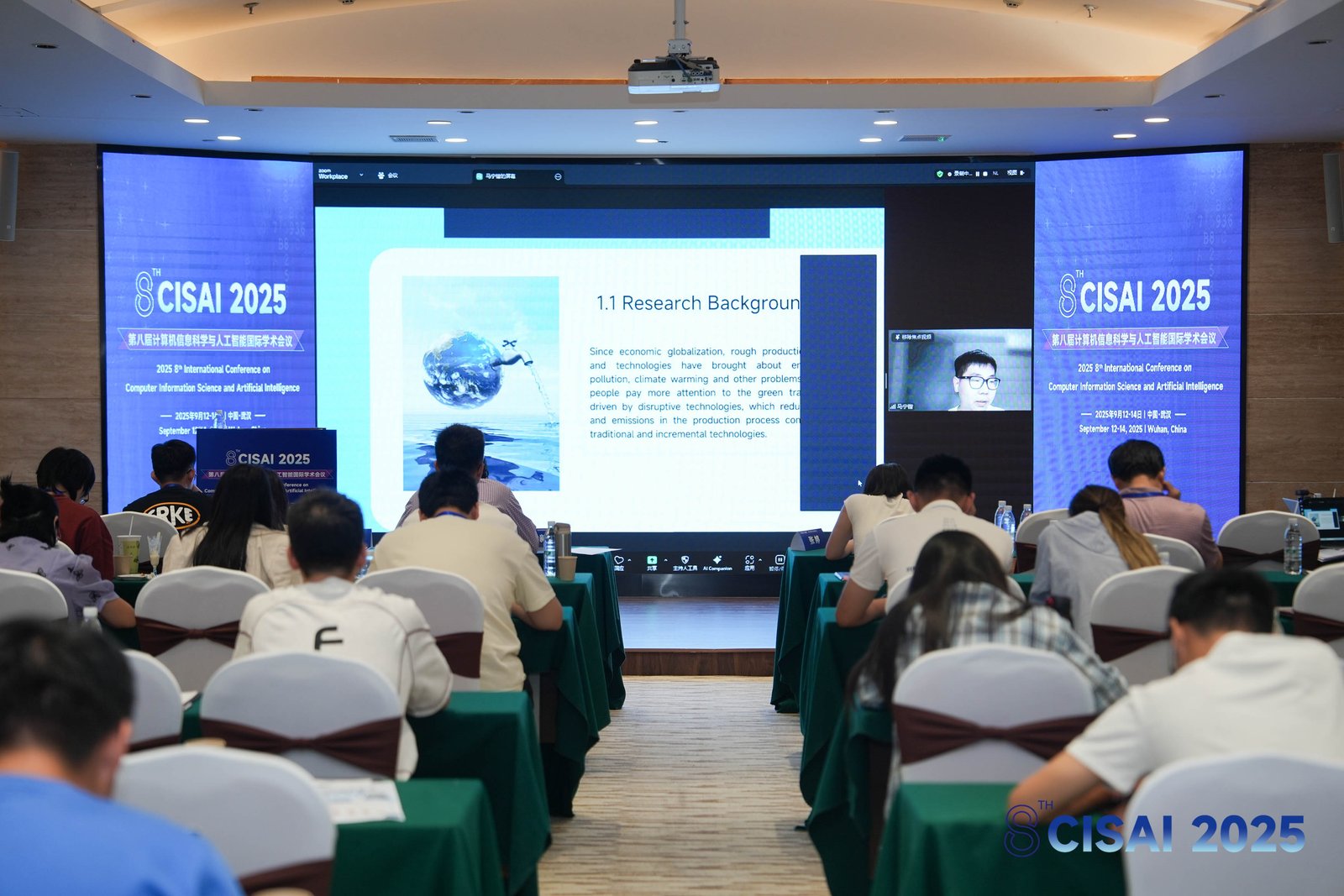 |
The conference received nearly 200 paper submissions. After a rigorous review by the program committee, several awards were presented, including the Best Paper Award, Best Oral Presentation Award, and Best Poster Award. Certificates were awarded to recognize outstanding young scholars and innovative achievements.
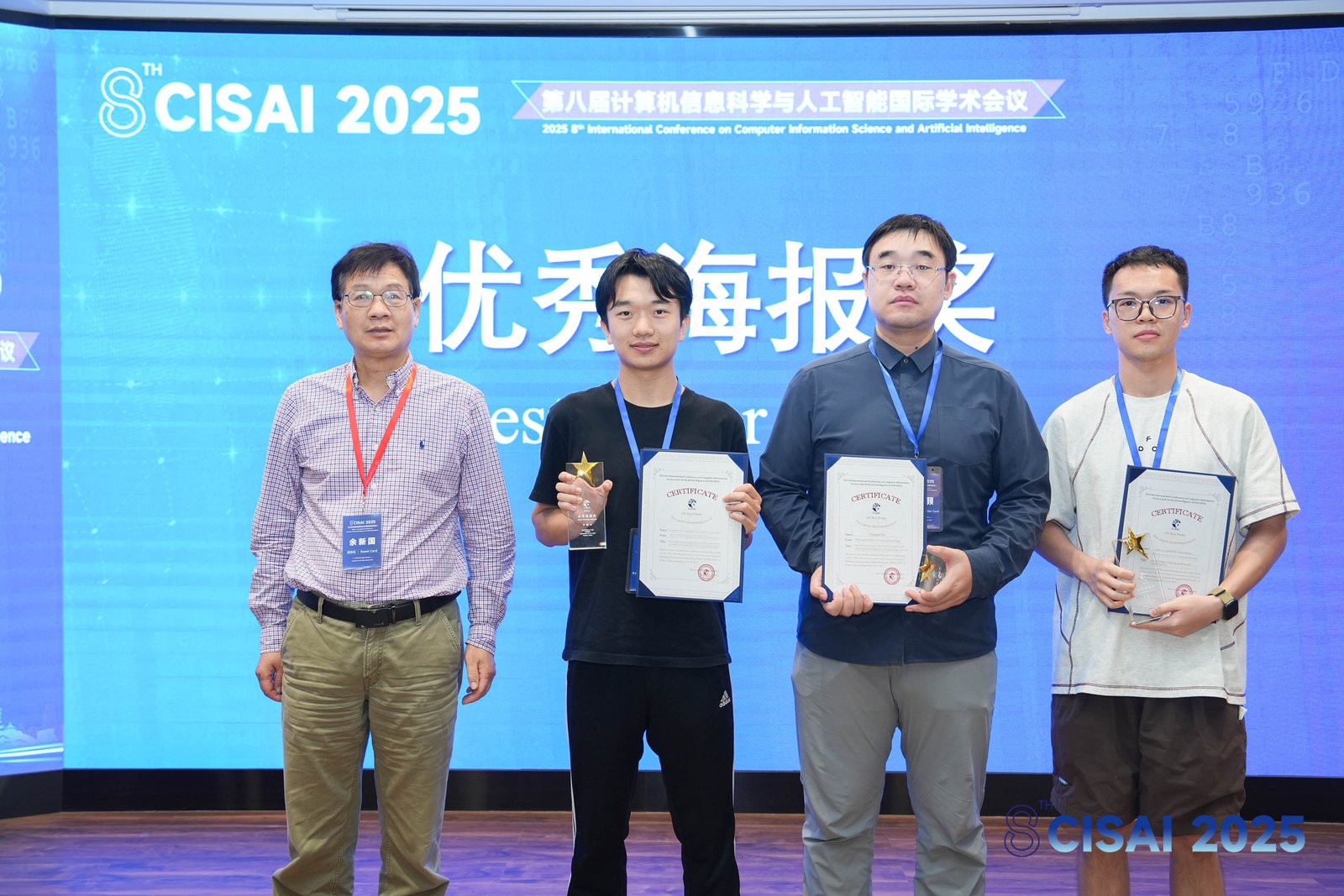 | 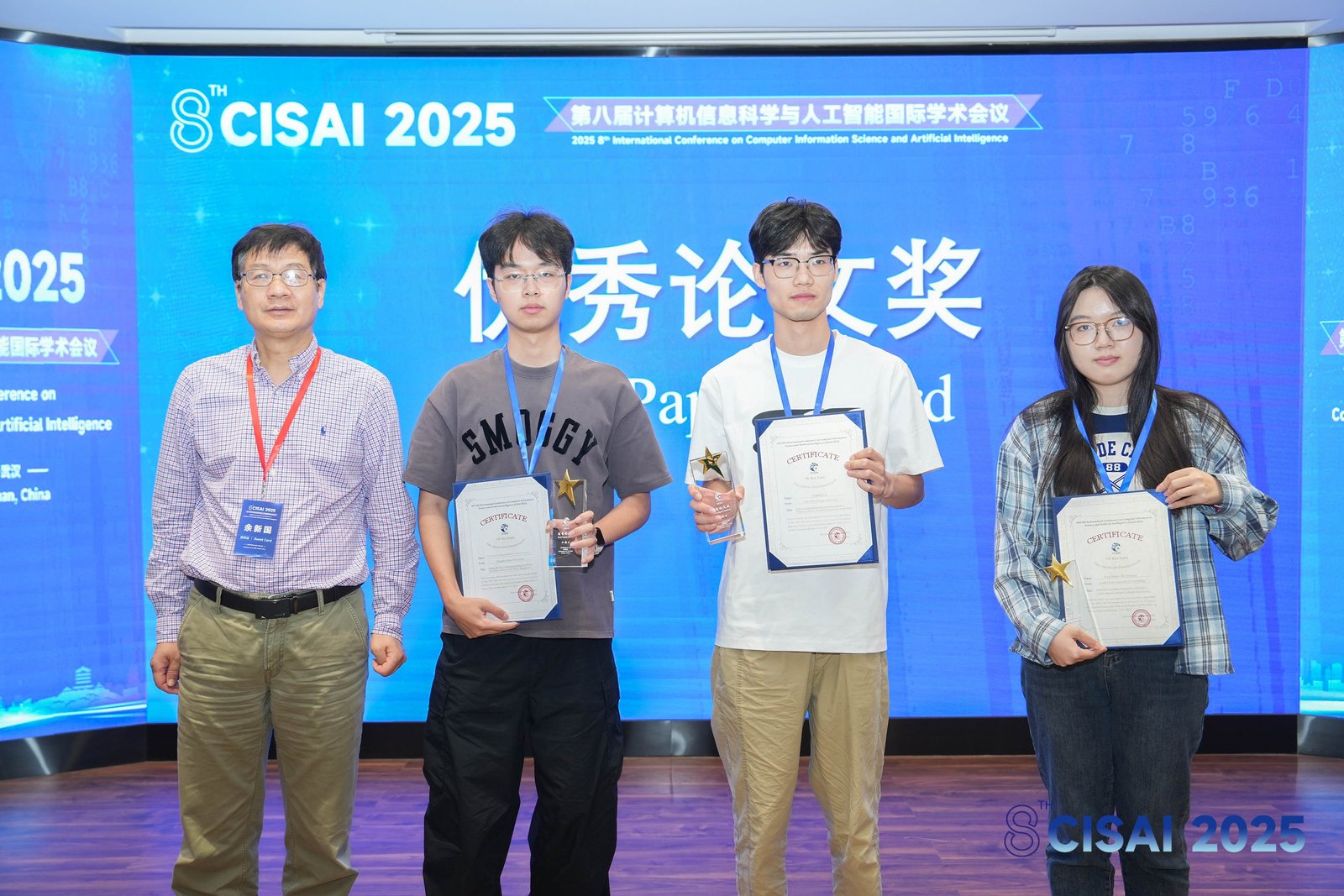 | 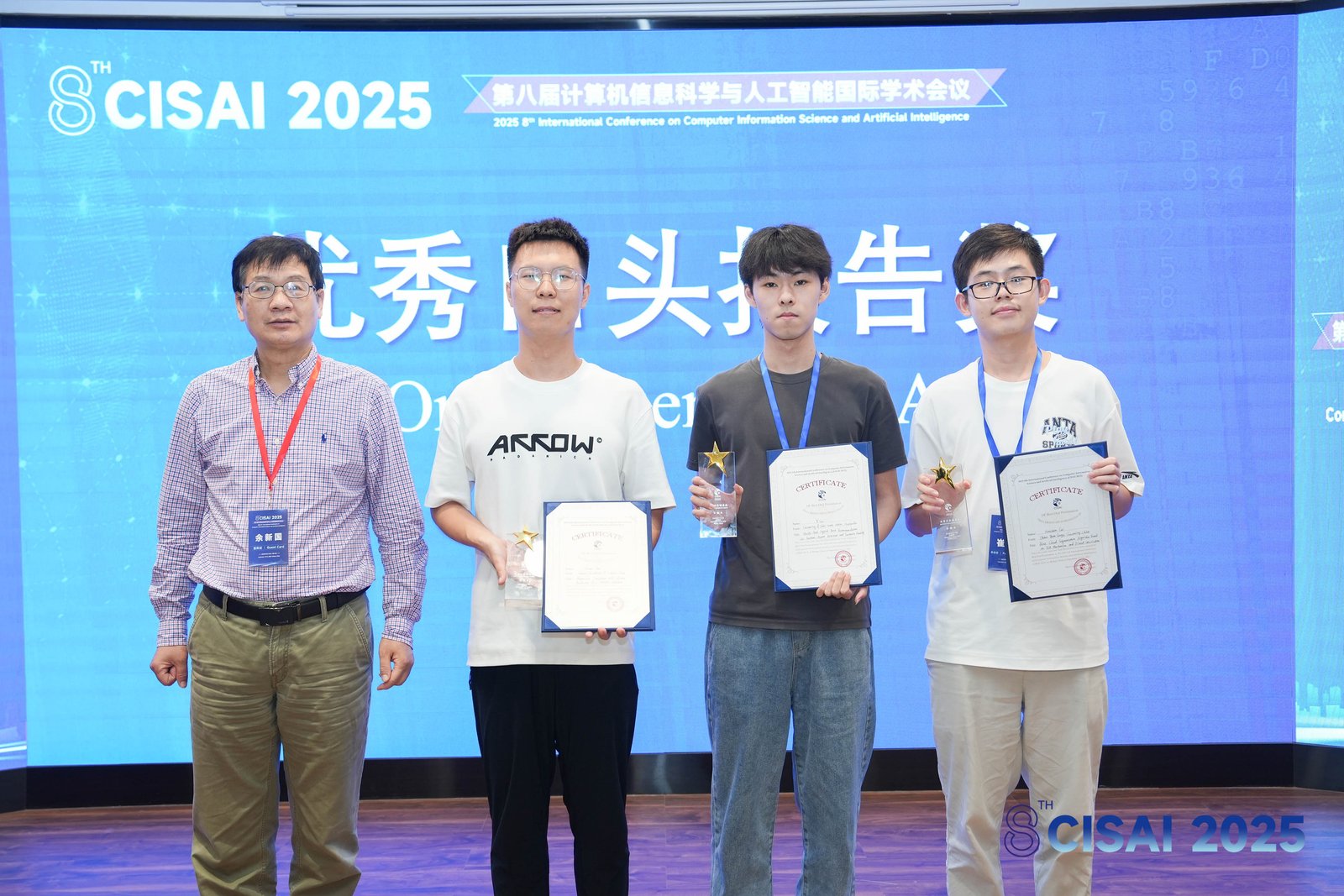 |
The successful organization of CISAI 2025 provided a high-level platform for scholars, engineers, and graduate students in the fields of artificial intelligence and computer science to engage in meaningful dialogue. It effectively promoted academic collaboration and research innovation across institutions and disciplines. The organizing committee extends sincere gratitude to all speakers, participants, reviewers, and supporting staff for their contributions and support. We look forward to continued collaboration in advancing intelligent technology exploration and practical applications in the future!
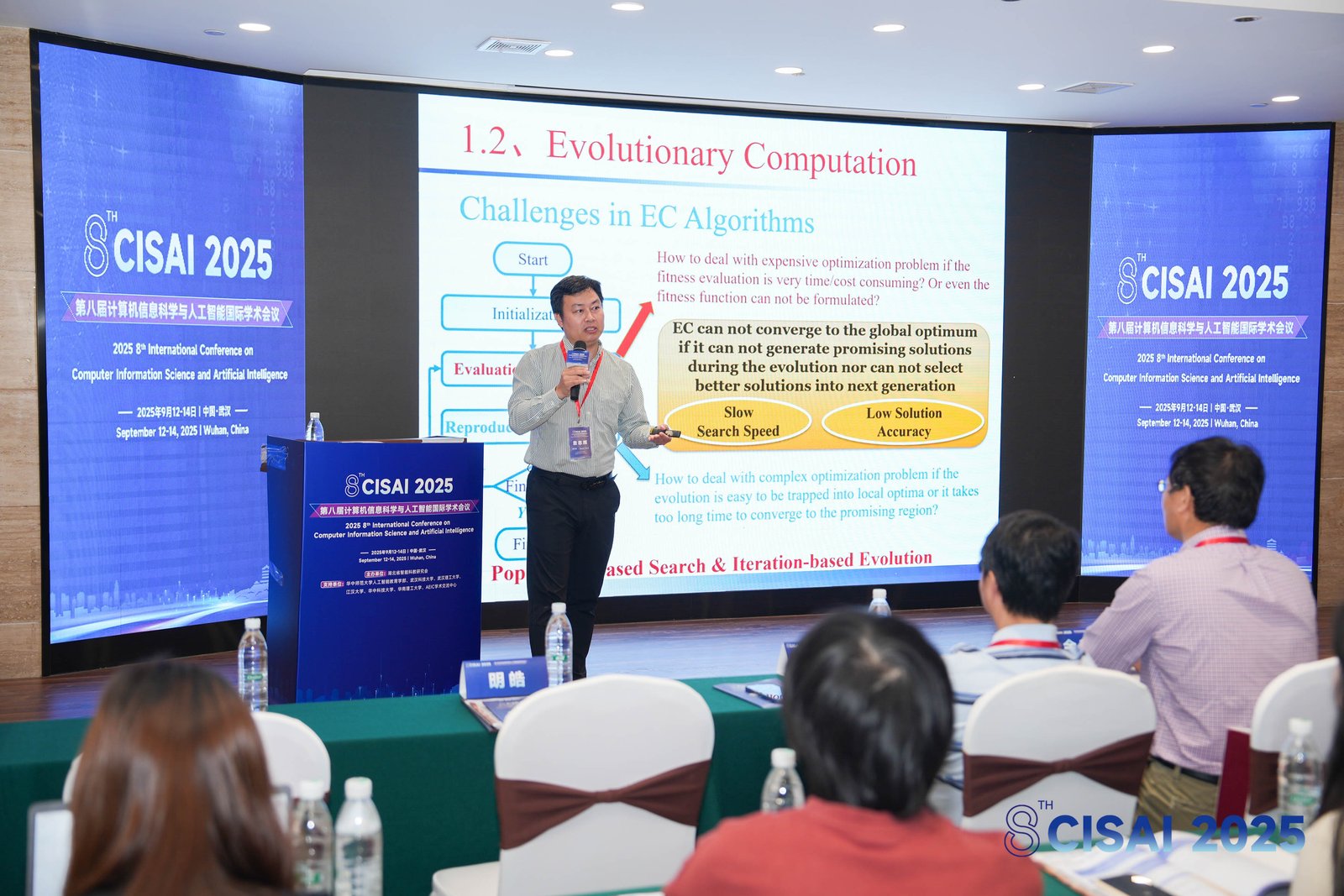 Zhi-Hui Zhan (IEEE Fellow), Nankai University, China
Zhi-Hui Zhan (IEEE Fellow), Nankai University, China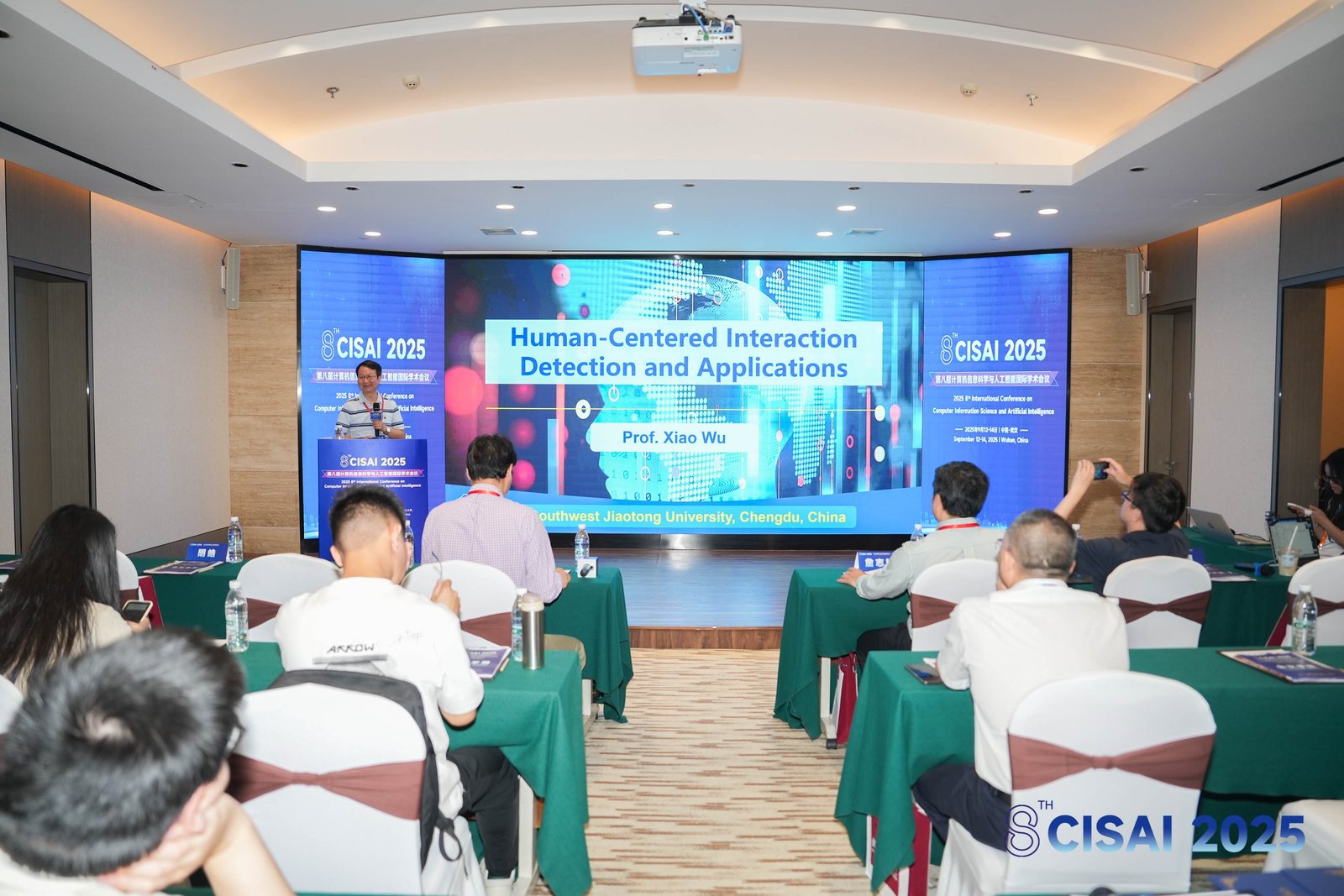 Xiao Wu, Southwest Jiaotong University, China
Xiao Wu, Southwest Jiaotong University, China